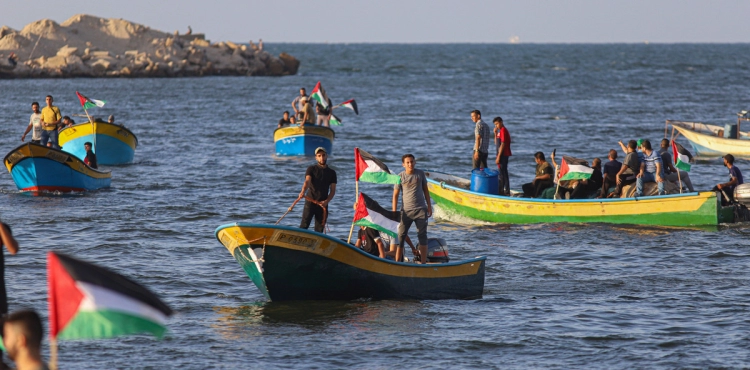A new online poll conducted by the International Committee of the Red Cross (ICRC) showed that 9 out of 10 young people from Gaza who participated in the survey believe that their lives are abnormal.
Two-thirds of respondents said they depend on their families for income, while 40% said they have no hope of finding a job within the next 15 years. One-fifth of Gaza´s population is young people between the ages of 18 and 29.
The majority of young people who took part in the ICRC´s survey believe that the same major challenges they have faced in recent years will determine their life path at the next stage.
“The closure and wars have negatively affected all the young people in Gaza, I am not the only one affected,” Laith Rushdan, a 25-year-old university graduate, told the ICRC.
The war is bad enough, and if we increase the closure, the burden becomes too much.” The fifteen years of restrictions imposed by Israel on the movement of people and goods to and from Gaza have contributed significantly to the further deterioration of the economic and humanitarian situation in Gaza.
This has restricted access to basic services, jobs and opportunities outside the Occupied Palestinian Territories.
The needs of young people go beyond the economic dimension in Gaza, as half of the youth say that they have suffered from serious psychological problems, and a third of them face social problems. “The young people in Gaza desperately need a ray of hope and a path that leads to more opportunity away from the pain and suffering caused by escalation and movement restrictions,” says Nicholas Girart, deputy director of the ICRC sub-delegation in Gaza. It enables young people in Gaza to live in dignity in the hands of the authorities responsible for the multiple rounds of escalation and restrictions on movement.
The ICRC calls on the authorities to address immediately the deep-seated humanitarian consequences that prevent young people from accessing basic services and contribute to the deepening challenges they face in terms of mental health and high unemployment rates. “All we ask is to live normally like others around the world.
We want to be able to move freely, to travel, to move freely, to travel and to have decent jobs,” 23-year-old Nouran Al-Zaim told the ICRC.












